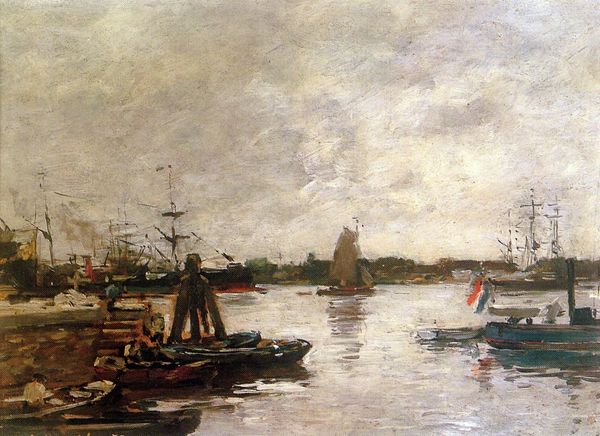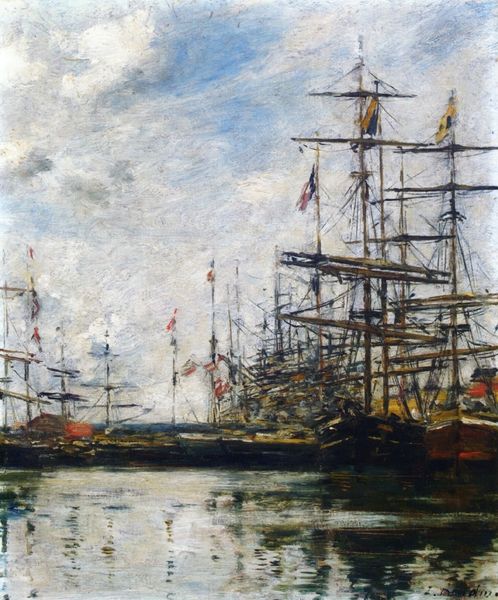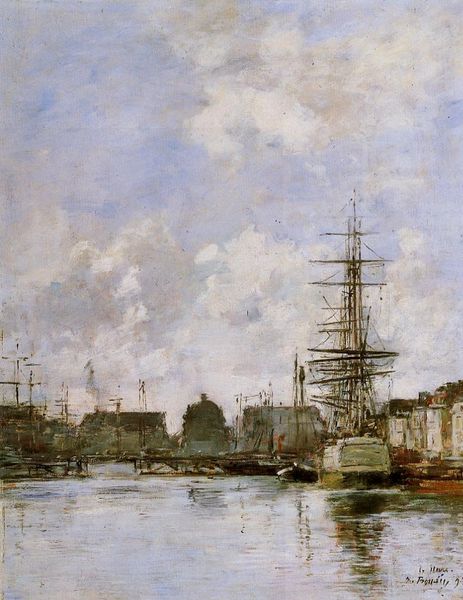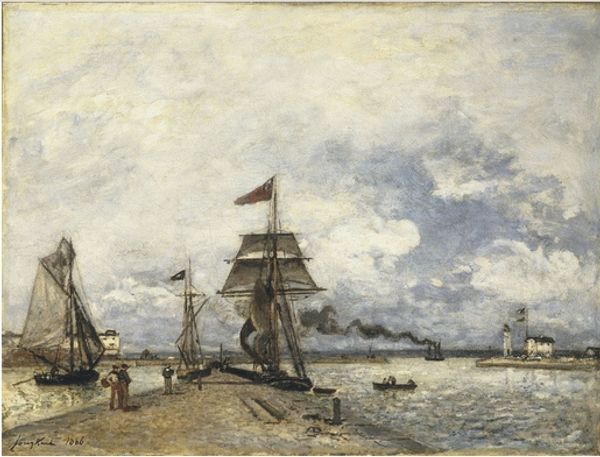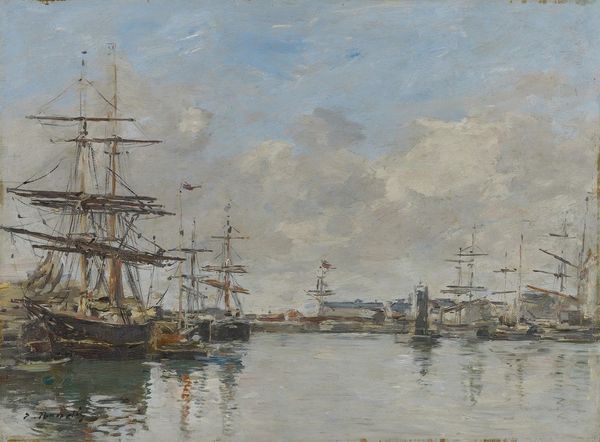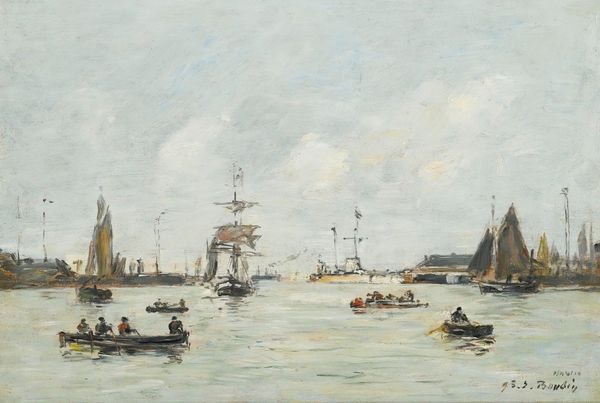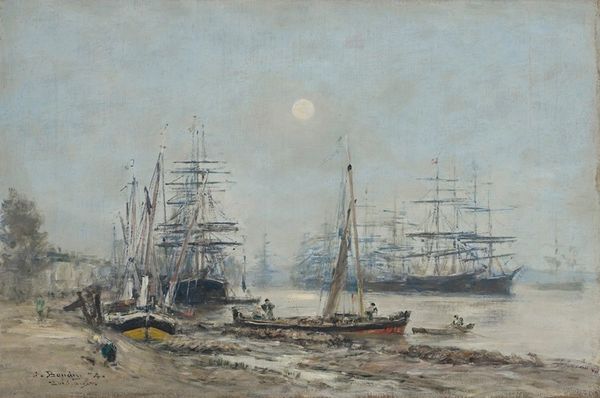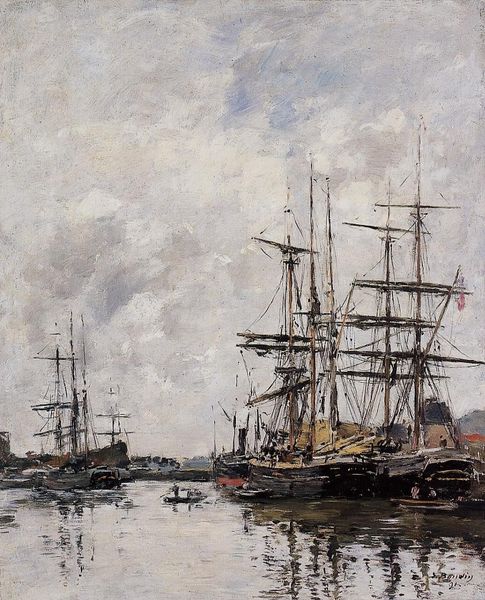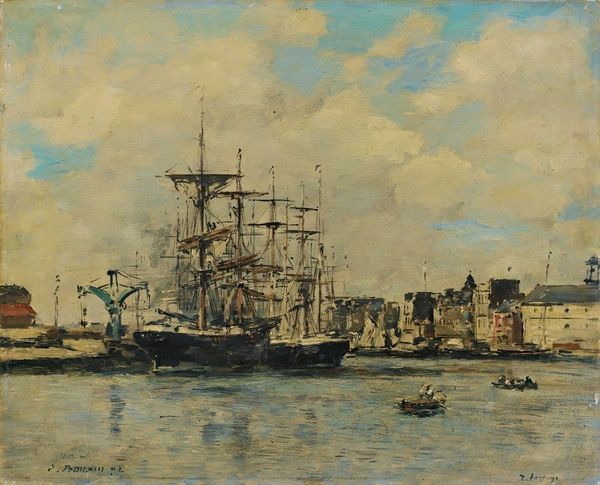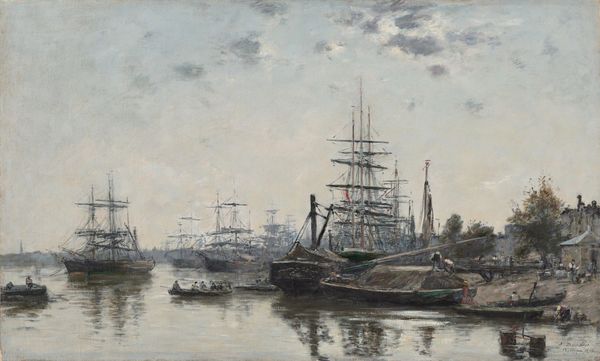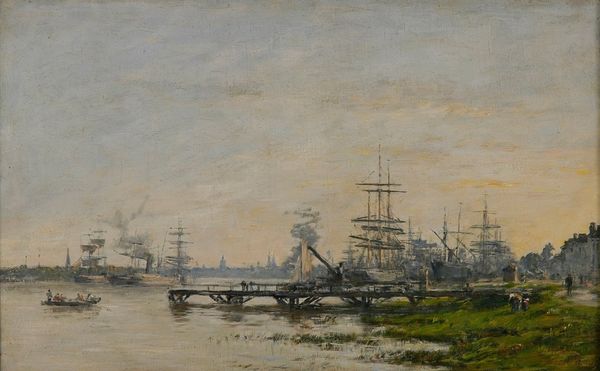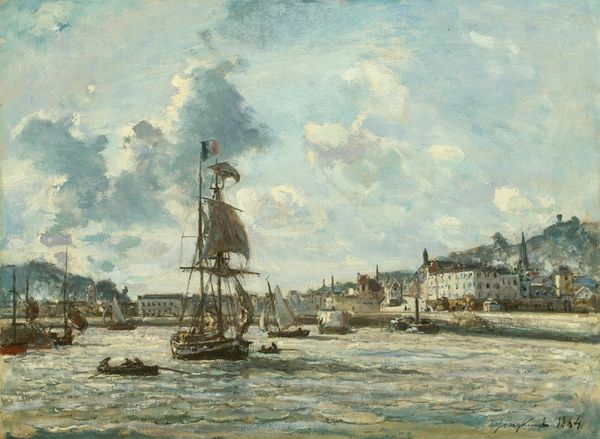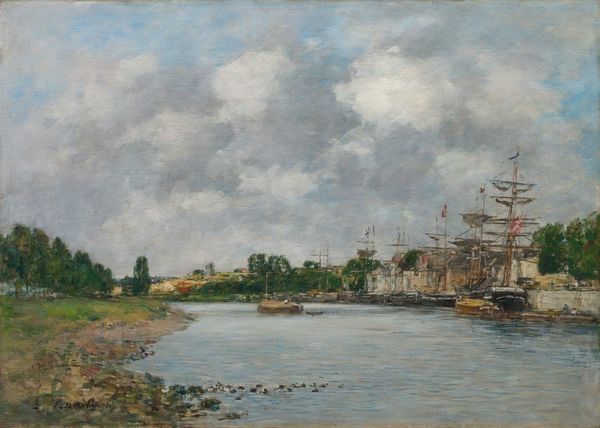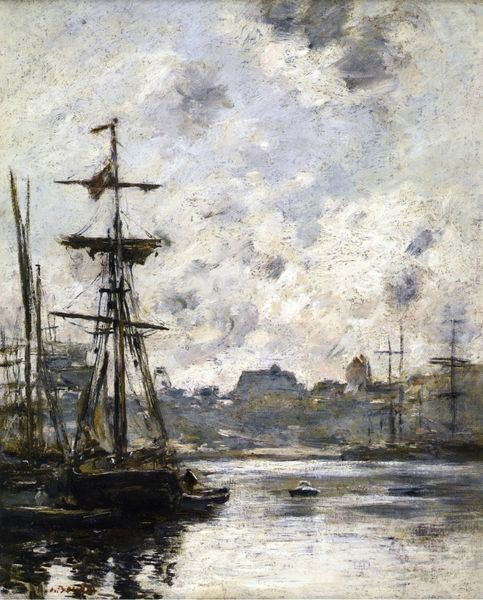
Dimensions: 58 x 36 cm
Copyright: Public domain
Curator: This is Eugène Boudin’s “Bordeaux,” painted in 1876. It captures a harbor scene bustling with ships. Editor: The overall impression is one of lightness and airiness. The colors are muted, almost pastel-like, creating a serene yet subtly melancholic atmosphere. Curator: Boudin was a master of depicting light and atmosphere. These harbors, for instance, signified more than just maritime activity; they symbolized departure, arrival, and the constant flow of commerce and people. In other words, societal dynamism, right? Editor: Undoubtedly. Note how the vertical lines of the masts and rigging create a complex network against the broad expanse of the sky. It is balanced by the horizontal stretch of the shore and water, structuring the visual space very deliberately. Curator: Right, and consider the boats themselves. Each mast—a vertical thrust towards something…transcendence or worldly goals, perhaps? They're also phallic symbols, of course: assertions of potency. The water becomes a symbol for something in conscious relationship with this... maybe the emotional. Editor: Potency in the service of commerce, it seems. Yet the indistinctness of the forms, particularly in the background, is a fascinating element of visual interest. It makes the picture a network of structured abstract and objective shapes. Curator: It definitely points toward Impressionism and how artists like Boudin sought to capture the fleeting moments and subjective experiences of reality. Remember, harbors have always been liminal spaces. All comings and goings suggest deeper stories: loss, discovery, and perpetual transition. Editor: Ultimately, what stays with me is how Boudin used light to evoke such a range of emotions, all contained within this carefully orchestrated composition. Curator: For me, it's the suggestion that history and our own emotional life exist together.
Comments
No comments
Be the first to comment and join the conversation on the ultimate creative platform.
